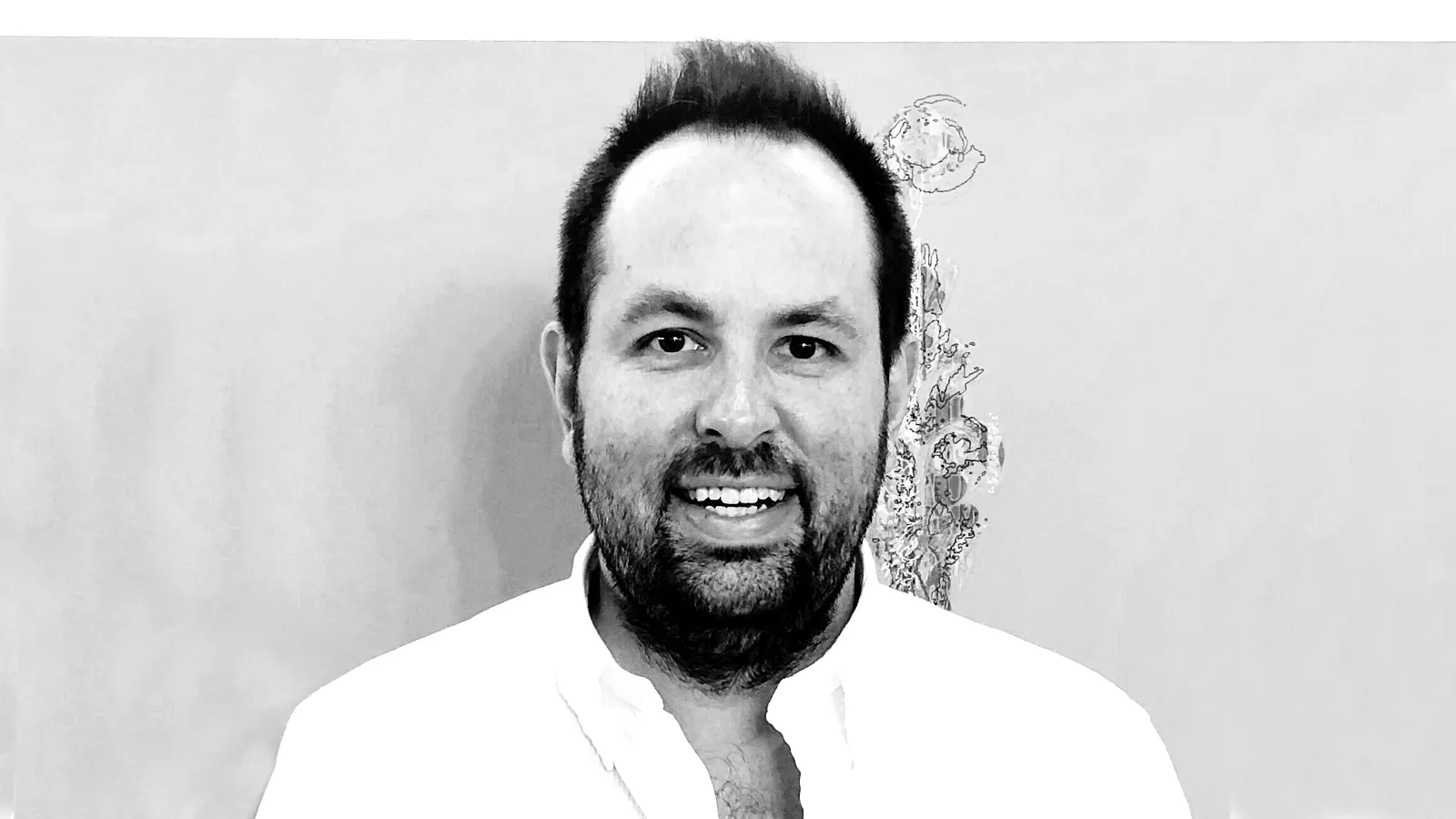Jake Yocom-Piatt is Project Lead for Decred and a cryptocurrency pioneer who has been using, funding and directing the creation of open-source software for over a decade. Jake previously funded and oversaw the creation of Btcsuite, an alternative full-node Bitcoin implementation written in Go, whose source code has been used in several other notable projects, including Lightning Network, Ethereum, and Factom.
He also is a co-creator of zkc, a high-security asynchronous chat system. In this interview he explains how he came to launching the company he calls home and why being true to your word is a key component of being an active member of the crypto community.
How did you first get into blockchain and the decentralized web?
I had heard about Bitcoin back in 2011 as a way to store and transfer value outside of banks, and I was intrigued. Then, in early 2013, I was working with a group of developers on an encrypted online storage project, we weren’t really getting anywhere competing with large venture-backed competitors. I wanted to continue working with the same team of developers on something exciting and meaningful. We pivoted to working as Bitcoin developers because we saw a need for an alternative to Bitcoin Core. From early 2013 to 2015, I funded the creation of a full node implementation of Bitcoin in Go called btcsuite that would help Bitcoin be more decentralized. While btcsuite did not gain substantial adoption amongst Bitcoin users, several other projects, including Lightning Network, Ethereum, and Factom used the source code.
When did you set up Decred?
While we were big fans of Bitcoin and everything it represented, we quickly came up against issues with the way it was governed. Decisions were made by an inner circle of people who weren’t very welcoming to us because we were “outsiders” who wanted to contribute to the project. As a group, with two anonymous co-founders, we decided to create Decred in early 2014, and it was launched publicly in February 2016. We looked at what was successful with Bitcoin and what we could add by baking in formalized governance from the start. We wanted to create a structure whereby anyone in the community with skin in the game — not just a privileged few — could own and operate the system, make the rules, and determine the direction of the project.
What need does it serve?
Decred’s vision is to build a self-directed, decentralized future ruled by the collective intelligence of the community. It is built upon the pillars of sovereignty, transparency, inclusivity, privacy, and security. Everyone can vote on the rules and project-level decision making proportionately to their stake, yielding decisions and policies in the best interest of all — not just a select few.
Being a respected member of the blockchain community requires you to practice what you preach. You can’t call yourself a DAO if one person or small group of people holds the keys to the kingdom.
Have you launched other companies before? What were they?
Prior to the founding of Company 0, I had founded Conformal Systems. At Conformal Systems, we created an encrypted online backup product, called Cyphertite, and btcsuite, a full node implementation of Bitcoin in Go.
Can you give us a summary of your career thus far, how did you get here?
Although I studied physics in college, I’m actually a self-taught systems administrator, which led to starting a variety of projects with a team of developers. Personally, over the last ten years, I’ve been searching for a better alternative to the “free” services that claim to make our lives easier but end up selling our data for profit.
For me, building on Bitcoin’s goal of becoming a store of value alternative to the fiat financial system makes the most sense as a starting point. Decred is an extension of my goals to get more people involved in the decisions that affect their daily lives. Along with the community, we’re building Decred as a hedge to Bitcoin because it’s more secure, adaptable & self-funding. There’s such a strong intellectual community made up not only of developers, but also many contributors who engage in productive debate to move the project forward. We’ll continue to evolve toward our vision of being a true Decentralized Autonomous Organization (DAO) ruled by collective intelligence.
What have been the biggest challenges you’ve faced in building a business in this space?
True decentralization requires a great deal of conversation and hard work. Improvements and decisions are incremental and take time to materialize as usable code. This is both a challenge in terms of development speed, and personally the most compelling part of Decred.
We find the best decisions for the long-term sustainability of the project by voting over our off-chain system, Politeia. Politeia is our off-chain public proposal system, where community members can decide if a project gets approved or not. Anyone who owns Decred has the opportunity to vote on the rules and development proportionally to their stake. It might not be as fast as a CEO making a snap decision, but it’s more sustainable in the long term and ensures decisions and policies in the best interest of everyone involved.
Sovereignty is the next ‘killer app’. More and more people are realizing they want a say in a cryptocurrency similar to the way shareholders are able to vote on decision making with traditional investments.
Another challenge has been solving the problem of funding. Many crypto projects have either taken VC money and compromised their freedom from outside influence, or conducted an ICO and exposed themselves to all the risks that go with it. And when that investment dries up, what then? This was one of the most challenging but rewarding intellectual experiments in my work on Decred. I used my own money to get it started, but we designed a block reward mechanism that takes care of the rest.
Did you know?
I enjoy hiking and scrambling in the wilderness. There is nothing quite like climbing over difficult terrain without safety equipment.
With ten percent of each block reward going to the Treasury, Decred is completely self-funded. This financial model reduces conflicts of interest and enables ongoing development powered by a unique contractor model that allows contributors to receive payment for work they find interesting. Together these systems provide solid protection against value-loss events like chain splits and hard forks, giving Decred the resilience to stand the test of time.
What’s the best piece of advice you were given when it comes to being an entrepreneur in this space?
Walk the walk. Sacrifice your ego for the greater good of the project. Being a respected member of the blockchain community requires you to practice what you preach. You can’t call yourself a DAO if one person or small group of people holds the keys to the kingdom. With Decred, we’re taking concrete steps towards becoming a fully-fledged DAO, which means automating our treasury spending so that no centralized entity holds the keys to power.
What advice would you give to someone setting up a business in the decentralized web?
If you want to truly decentralize, build in governance features from the start. While it will take iteration to get it right, this is much easier than trying to remove power from a small group of people who have everything to lose by giving it up.
If you built Decred all over again, what would you do differently?
A notable regret is that I started the contractor work with a Request For Proposal (RFP) system, rather than working on a per-contractor basis. From our launch in early 2016 until early 2017, we used an RFP system to solicit participation from external contractors. This led to very limited interest and several contractors not delivering on their contracts, effectively sitting on work that we could have otherwise found contractors to complete. Instead, the model of paying the self-motivated supporters of the project who were already creating work product ended up working much better, and was more in the spirit of open-source software projects.
What project or projects are you most excited about (that aren’t yours!)
Decred’s been in the governance game from the start. I have a lot of respect for Dash and Monero on their two distinct approaches to immutability and privacy, and that’s something we’re looking to streamline into Decred in the future.
What is (or what will be) blockchain’s ‘killer app’
Sovereignty is the next ‘killer app’. More and more people are realizing they want a say in a cryptocurrency similar to the way shareholders are able to vote on decision making with traditional investments. People should have an explicit vote in the direction will keep them engaged and vested to ensure long-term sustainability. We’ve built in sovereignty from the start on Decred, and more and more projects are working to add similar governance features to match this growing demand.
What’s the difference between setting up a company in the decentralized space versus regular business?
There are a lot of unknowns. Jumping into a largely unregulated space means that not only is there a lot of ambiguity around how to recruit a decentralized, global community to support and secure the network, but there are also different fiduciary laws in every country. Many of these laws are being decided as we speak, so a decentralized project like Decred has to be adaptable to meet these changes in a way a traditional business or national currency does not.
How would you describe blockchain to someone who has never heard of it before?
Blockchains are based on the concept of iterated permissionless games. The process of creating a block constitutes a single game, and a blockchain is a linked series of such games. The main utility of blockchains is a time ordering of the blocks that is derived from the linked series of games, where the game is designed to be very expensive to recreate or otherwise reproduce.

